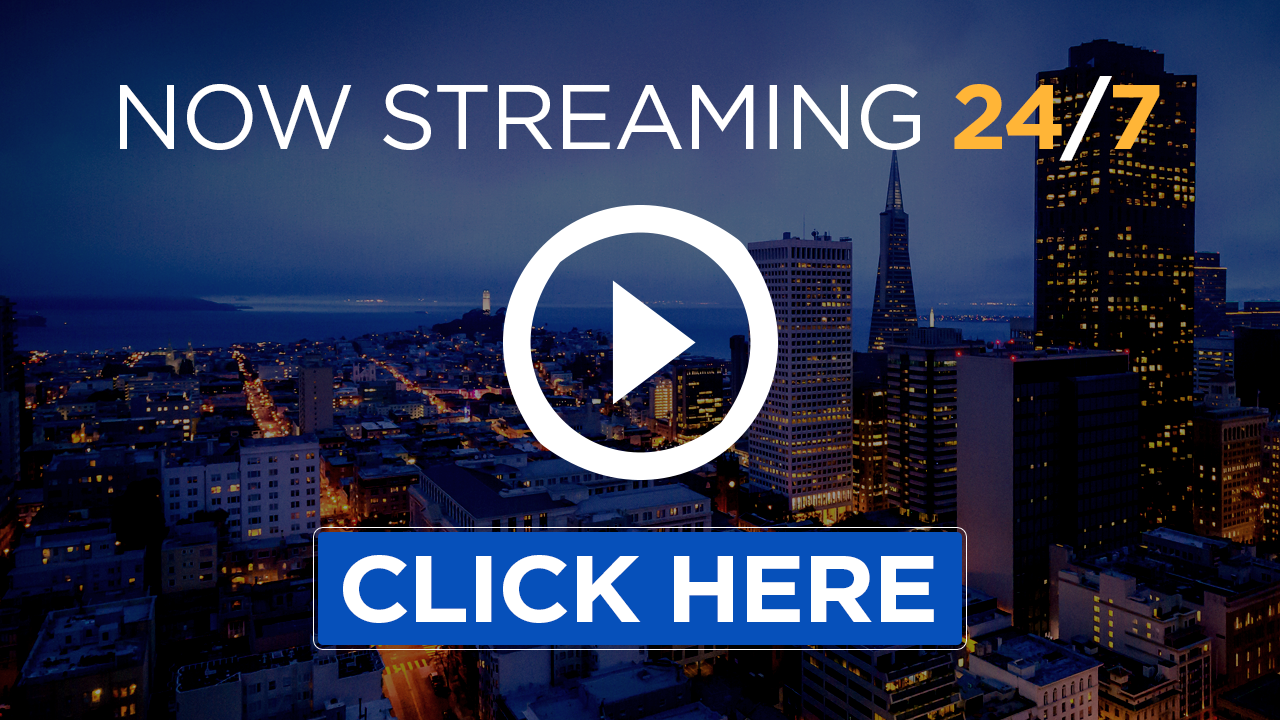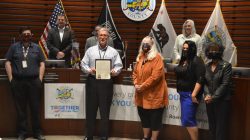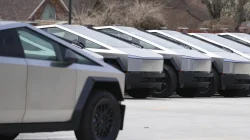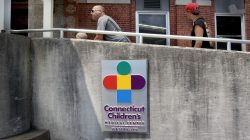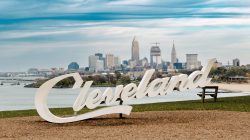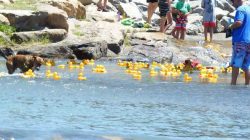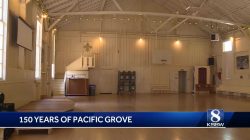California DMV Files Lawsuit Against Tesla Over Self-Driving Claims
The California Department of Motor Vehicles (DMV) has taken legal action against Tesla, alleging that the electric vehicle manufacturer has misled consumers regarding the self-driving capabilities of its cars. The DMV is seeking to halt Tesla’s sales and manufacturing operations in the state for a minimum of 30 days. This move comes as part of an ongoing debate about the safety and accuracy of Tesla’s “full self-driving” technology.
On Monday, a group of critics gathered outside the Office of Administrative Hearings in Oakland, expressing concerns over what they describe as dangerous misrepresentations by Tesla. Activists argue that the company’s marketing of its autonomous features has led to tragic consequences. Shua Sanchez, an activist, stated, “These lies have killed 58 people. They’re going to kill a lot more.” She emphasized that Tesla vehicles are crashing, causing injuries and even fatalities.
This issue has been under scrutiny by both the federal government and local media outlets since 2018. That year, Apple engineer Walter Huang was killed when his Tesla crashed while in Autopilot mode. It was later revealed that Huang had raised concerns about the reliability of the system before the incident. In 2022, surveillance footage captured a white Tesla causing an eight-car pileup on the Bay Bridge after suddenly braking. The driver claimed the incident occurred while the car was in “full self-driving” mode.
These incidents, along with others, prompted the DMV to file a lawsuit, leading to a hearing to assess the request for a 30-day suspension of Tesla’s operations in California. The DMV argues that Tesla has misrepresented the capabilities of its “fully self-driving” function. Michelle Merrill, an organizer with Scientists Rebellion, said, “These systems are not ready for being simply a driver assist system—which is what they keep claiming.”
Understanding Levels of Automated Driving
UC Berkeley Professor Scott Moura, an expert in batteries, electric vehicles, and automated systems, explained the technical differences between various levels of automation. He noted that Tesla’s Full Self-Driving (FSD) technology corresponds to Level Two, not Level Five. According to California law, the term “autonomous” refers to Levels Three through Five. Moura clarified that Level Two systems do not drive themselves completely in all situations, and drivers must remain attentive at all times.
Moura also pointed out that Tesla’s systems are not considered autonomous under current definitions. “The driver cannot go ‘brain off’ and not pay attention,” he said. This distinction highlights the gap between what Tesla markets as “full self-driving” and what is technically possible.
Tesla’s Defense and Market Implications
Tesla has defended its approach, arguing that consumers understand the limitations of its technology regardless of advertising claims. James Sallee, a professor at the Haas School of Business, discussed how Tesla has positioned itself in the market. He said, “Tesla has always pushed the envelope on this issue and promoted its capacities and put its toe over the line if nothing else.” Sallee added that the company is already facing a string of challenges, and this lawsuit could further damage its reputation.
The outcome of the DMV’s case could have significant implications for Tesla’s operations in California. If the court grants the 30-day suspension, it would mark a major setback for the company. However, Tesla may continue to challenge the allegations, emphasizing its commitment to innovation and consumer education.
As the legal battle unfolds, the debate over the safety and regulation of autonomous driving technology continues to gain attention. With each incident and investigation, the pressure on automakers to ensure transparency and safety grows stronger.

